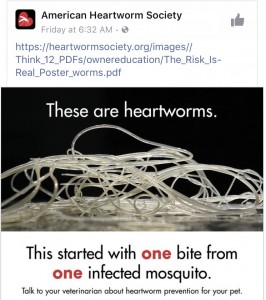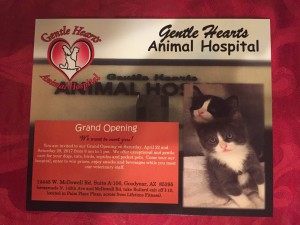In the last 2 days, there are local news reports that Canine Influenza has made it to the Phoenix Valley for the first time ever. A new strain of Canine Influenza, strain H3N2, has been identified in a Maricopa County Animal Care facility in two different dogs. This strain originated in birds and mutated over to a virulent form that infects dogs. It was first identified in Chicago in March 2015. It is highly contagious between dogs, and can be transferred through bodily fluids such as saliva or discharge from sneezing. Most dogs will present with similar clinical signs that a person with human influenza might have. These can include a wet cough that may last for days or weeks, vomiting or diarrhea, lethargy, ocular or nasal discharge, sneezing, and/or decreased appetite. Mortality is relatively low and has been reported as 1-5% in dogs that contract canine influenza, and is usually caused from dehydration, secondary infection or because a dog is already compromised from another condition. If you feel your dog has contracted Canine Influenza, it is important to seek veterinary diagnosis and treatment. Dogs can recover from Canine Influenza with appropriate care. Vaccinations and isolation are key factors in limiting this disease. Dogs that are at most risk for contracting Canine Influenza include dogs that frequent areas where there is a high population of dogs (like shows and trials and certain dog parks), dogs in large boarding facilities, dogs that have underlying risk factors including respiratory and cardiac disease, or owners that work with sick or debilitated dogs and then have contact with their own dogs. We carry vaccinations for Canine Influenza. Please call our hospital 623-298-4200 if you would like to set up an appointment for examination. You and our doctor and staff can discuss if this vaccine is appropriate for your dog!
Here are some of the early photos of clinic construction… shelving, back counter and sink, granite front reception area, flooring and signage.


















